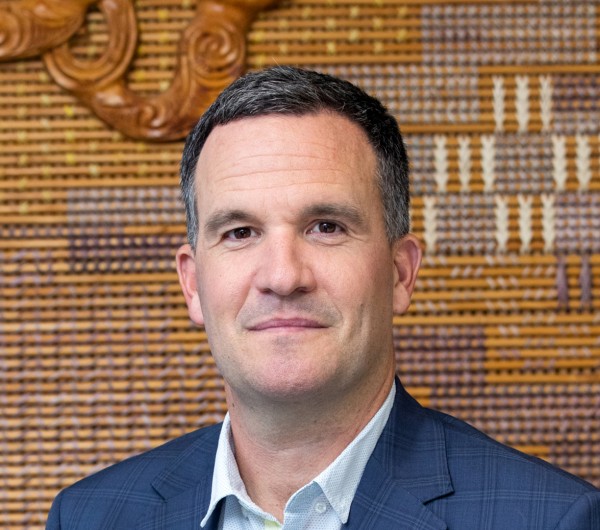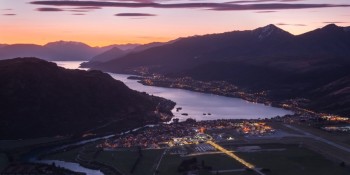Otago Regional Council releases Annual Report

Queenstown and Dunedin public transport offerings are at record levels, despite “challenging” economic times, the Otago Regional Council’s Annual Report shows.
ORC released its Annual Report this week, reflecting what council chair Gretchen Robertson says was a busy year.
“Our focus was not only on delivering efficient services to the people of Otago, but on supporting
community-led environmental initiatives for positive outcomes,” she says.
The ORC Annual Report will be considered by Councillors at a full meeting in Dunedin on Wednesday. The report is available in the meeting agenda online.
Cr Robertson says during the year the council refreshed its strategic directions, setting clear goals and focus areas to realise its vision for Otago—"where our environment and communities thrive, ki uta ki tai (from the mountains to the sea).”
“To the backdrop of a challenging economic climate, and with proposed Government legislative changes still underway, we placed a strong emphasis on delivering a long-term plan which achieves organisational efficiencies, ensuring we give value for ratepayers’ money while continuing to sustain healthy and connected communities,” she says.
The development of a new Land and Water Regional Plan remains a priority for ORC, with a work programme in place to achieve a notification decision this month; with a Council vote to notify or pause the Plan to be taken on Wednesday.
The council is also committed to returning an increased dividend from Port Otago to the Otago community as part of delivering greater value, she says.
“We’re proud to highlight ORC’s accomplishments in hazard resilience, significant growth in bus patronage, navigational safety, regional civil defence coordination, environmental science, biosecurity, and regulatory activities,” she says.
Other highlights for Cr Robertson included public transport services in Queenstown and Dunedin reaching record levels, with almost 1.9 million passenger trips in Queenstown and around 3.4 million in Dunedin during the past financial year, a 51% increase in Queenstown and 21% in Dunedin.
In ORC’s environmental monitoring and regulatory roles, Cr Robertson says staff completed 1411 compliance checks, including consent audits, dairy inspections, and forestry site visits, while the Pollution Hotline handled 1095 incidents, with 101 formal enforcement actions taken in 2023-24.
She was “really pleased” that ORC’s annual ECO Fund was fully subscribed, again, this year, which supports targeted and general community environmental projects.
“We’ve also actively fostered community-led catchment management initiatives in the Catlins and Upper Lakes,” she says.
“Our valued partnership with mana whenua in Otago continues to underpin much of our work programme, with positive water enhancement work continuing through these partnerships,” she says.
She noted the remediation project for Te Hakapupu Pleasant River with Kāti Huirapa Rūnaka ki Puketeraki, plus partnering with other multi-stakeholder initiatives like the Te Mana o te Taieri project and Predator Free Dunedin, as examples of such.
For the year ahead, Cr Robertson says climate change remains a crucial focus area for ORC.
“This year, councillors endorsed the draft Strategic Climate Action Plan, and we’re now looking forward to seeking community input on this important initiative,” she says.
ORC’s work on a variety of natural hazards adaptation programmes continues for South Dunedin, the Clutha Delta, and Glenorchy/Head of Lake Whakatipu, while climate resilience projects for our flood schemes have made significant progress, she says.
The Annual Report outlines a total 79 targets sought in service provision. While 48 were “fully achieved” and 5 “partially achieved”, there were 25 targets which were “not achieved”.
ORC chief executive Richard Saunders says while he is pleased 48 targets were achieved overall, it shows that there is more work for the organisation to do in setting its work programme and delivering those things for the community.
However it did achieve some “great results in the face of challenging and changing times throughout the year”.

Image (supplied): ORC chief executive Richard Saunders
He noted that under Safety and Resilience was management of Flood Protection and Emergency Management, both of which were under duress earlier this month around coastal Otago and some places inland, but both were reported to have functioned well and helped keep communities safe.
He said of the 25 targets not achieved, a number were linked to the deadline for the final delivery of reports, reviews and plans, many of which had since been completed and were pending formal delivery.
“Much of the work was completed within the financial year however we did not meet the target as set out in the service levels,” he says.
Main image (supplied / ORC): Bus services in Dunedin and Queenstown at record levels

























